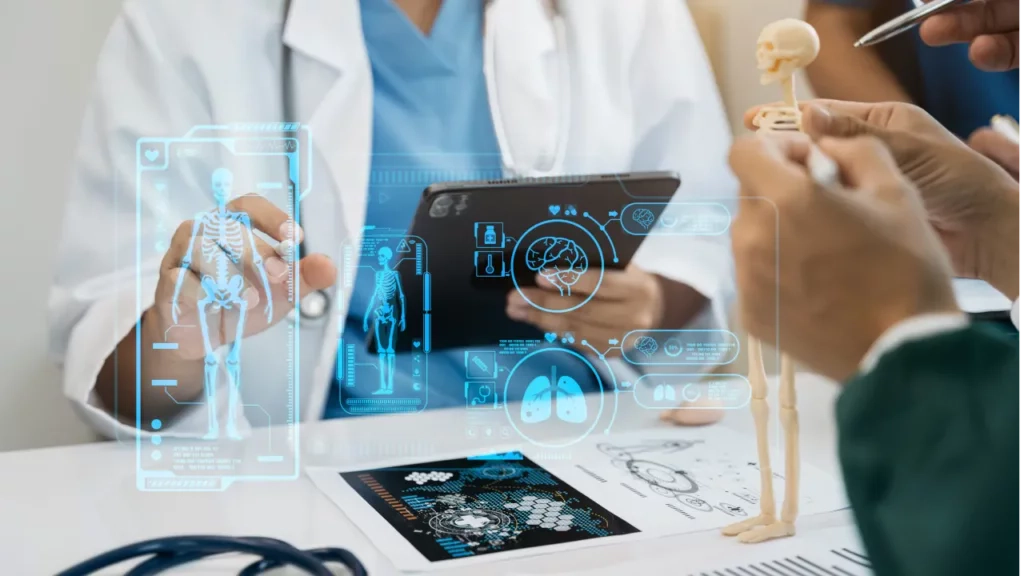Unveiling the Promise: Artificial Intelligence in Healthcare Diagnostics

The intersection of artificial intelligence (AI) and healthcare diagnostics heralds a new era of precision medicine and improved patient outcomes. In this article, we explore the transformative potential of AI algorithms in revolutionizing healthcare diagnostics. From analyzing medical images to detecting diseases, AI holds the promise of enhancing diagnostic accuracy and empowering healthcare professionals to deliver more effective care.
Harnessing the Power of AI in Medical Imaging
AI algorithms are poised to revolutionize medical imaging interpretation, offering unprecedented speed and accuracy in diagnosing conditions such as cancer, cardiovascular diseases, and neurological disorders. By analyzing vast datasets and identifying subtle patterns, AI-powered imaging systems can assist radiologists in detecting abnormalities with greater efficiency, thereby expediting diagnosis and treatment initiation.
Enabling Early Disease Detection
Early detection is paramount in the fight against diseases such as cancer, where timely intervention can significantly improve prognosis. AI-driven diagnostic tools leverage machine learning algorithms to sift through vast amounts of patient data, identifying subtle biomarkers and indicators of disease onset. By flagging high-risk individuals and prompting further evaluation, AI facilitates early disease detection, enabling proactive interventions and improved patient outcomes.
Facilitating Accurate Diagnosis
Accurate diagnosis forms the cornerstone of effective healthcare delivery, yet diagnostic errors remain a persistent challenge. AI algorithms offer a solution by augmenting healthcare professionals' diagnostic capabilities through advanced pattern recognition and decision support. By analyzing clinical data, laboratory results, and patient histories, AI systems provide clinicians with actionable insights and differential diagnoses, thereby reducing diagnostic uncertainty and improving treatment planning.
Enhancing Personalized Medicine
AI-driven diagnostics pave the way for personalized medicine by tailoring treatment strategies to individual patient profiles. By analyzing genomic data, biomarkers, and clinical parameters, AI algorithms identify patient-specific risk factors, treatment responses, and prognostic indicators. This precision approach enables healthcare providers to deliver tailored interventions that optimize therapeutic efficacy and minimize adverse effects, ultimately improving patient outcomes.
Addressing Challenges and Ethical Considerations
Despite its transformative potential, the integration of AI in healthcare diagnostics is not without challenges. Issues such as data privacy, algorithm bias, and regulatory compliance must be carefully navigated to ensure ethical and equitable deployment of AI technologies. Moreover, healthcare professionals require adequate training and education to effectively leverage AI tools while maintaining clinical autonomy and accountability.
The evolution of AI in healthcare diagnostics represents a paradigm shift in the way we approach disease detection and management. By harnessing the power of AI algorithms, we can unlock new frontiers in diagnostic accuracy, early disease detection, and personalized medicine. However, realizing the full potential of AI in healthcare requires a collaborative effort to address technical challenges, ethical considerations, and regulatory frameworks. As we continue to innovate and integrate AI into clinical practice, we embark on a transformative journey toward more effective, efficient, and equitable healthcare delivery.
Related Posts

Bridging the Gap: Telemedicine's Vital Role in Rural Healthcare

US Nursing Homes Understaffed, Jeopardizing Elderly Care

Treatment Can Do More Harm Than Good for Prostate Cancer – Why Active Surveillance May Be a Better Option For Some



